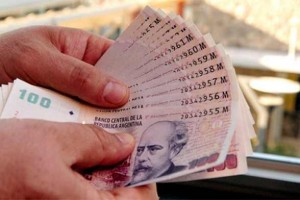
Cuba sides with Argentina in ‘vulture funds’ case
Cuba is siding with Argentina in the case of that South American nation’s foreign debt and how it can best pay it off.
In a statement published in the official daily Granma on Friday (June 27), the Cuban Foreign Ministry said that a U.S. federal judge’s decision giving some debt holders priority over others is “a form of aggression” against Argentina and other Latin American nations that are trying to renegotiate their foreign debts.
“By defending Argentina, we defend the right of the nations in the south to a sustainable development,” the statement says.
In 2001, Argentina defaulted on a debt that totaled almost 100 billion dollars. Subsequently, 92 percent of the bondholders agreed to be paid back at a loss, but the rest didn’t, insisting that their bonds be repaid in full. If that is done, Argentina contends, the country will fall into another default, perhaps more catastrophic than the one in 2001.
The holdouts are holding $1.3 billion in bonds, known as “hedge funds.” Argentina has deposited $832 million into U.S. banks to pay off the principal bondholders but doesn’t have enough money to repay the hedge funds in full. In Argentina, the bonds held by the holdouts are known as “vulture funds.”

A New York judge, Thomas Griesa, this week sided with the holdouts and turned down a bid by Argentine minister of the Economy Axel Kicillof to postpone payment of the “vulture funds” until they are renegotiated. Argentina has until Monday (June 30) to pay the holdouts in full, Griesa ordered. If it doesn’t, Argentina could default by July 31.
The U.S. Supreme Court declined to hear the case. The case is being tried in the United States because the disputed bonds were issued under New York law.
Analyzing the situation, The New York Times said that “the Argentine case could open a new chapter in the vast international debt markets that countries tap to fund their deficits. Some bond market experts say that a hedge-fund victory could make it harder for economically stricken nations to lighten their debt loads by striking deals with creditors. But supporters of the hedge funds say that credit markets function better when the rule of law is upheld.”
Below is the Cuban Foreign Minister’s statement, as translated by Progreso Weekly. For the original, in Spanish, click here
****
The Ministry of Foreign Relations of the Republic of Cuba has learned of the denunciation made by the President of the Republic of Argentina, Cristina Fernández de Kirchner, about the rulings by the United States Supreme Court and an Appeals Court in that country that are contrary not only to the interests of the sister South American nation but also of 92 percent of the creditors who agreed to a restructuring of the debt.
Argentina today has been placed on the brink of an unprecedented crisis of sovereign debt, superior even to the one in 2001, which left half of the Argentines in poverty and one fourth of them unemployed, as denounced by the [Argentine] Government and the National Congress.
It is not the first time that courts in industrialized countries rule in favor of the holder of “vulture funds.” That phenomenon was described and denounced in 1986 by the historical leader of the Revolution, Fidel Castro Ruz, during his battle against the Third World’s foreign debt.
Nobel laureates in economics like Joseph Stiglitz and Paul Krugman, economists like Anne Kruger, Thomas Palley and Nouriel Roubini; international organizations and governments of diverse types have questioned the speculative and corrupt conduct of the holders of vulture funds and U.S. judges who place United States courts above international law and the national laws of other states.
The Ministry of Foreign Relations denounces that we are in the presence of a new form of aggression against the nations of the south, which feeds from the economic conditions generated by foreign indebtedness and the crises of capitalism. Twenty countries have been victim of this type of action, directed basically against progressive governments that defend their sovereignty, as revealed during the recent Summit of the Group of 77+China, held in Bolivia.
This aggression against Argentina is also aimed against all “Our America,” especially against the processes of Latin American and Caribbean integration. By defending Argentina, we defend the right of the nations in the south to a sustainable development and a just international economic order.
Havana, 26 June 2014


